As Furiosa hits cinemas, we reflect on 9 years of Mad Max: Fury Road
Read Total Film's cover story on Mad Max: Fury Road from 2015
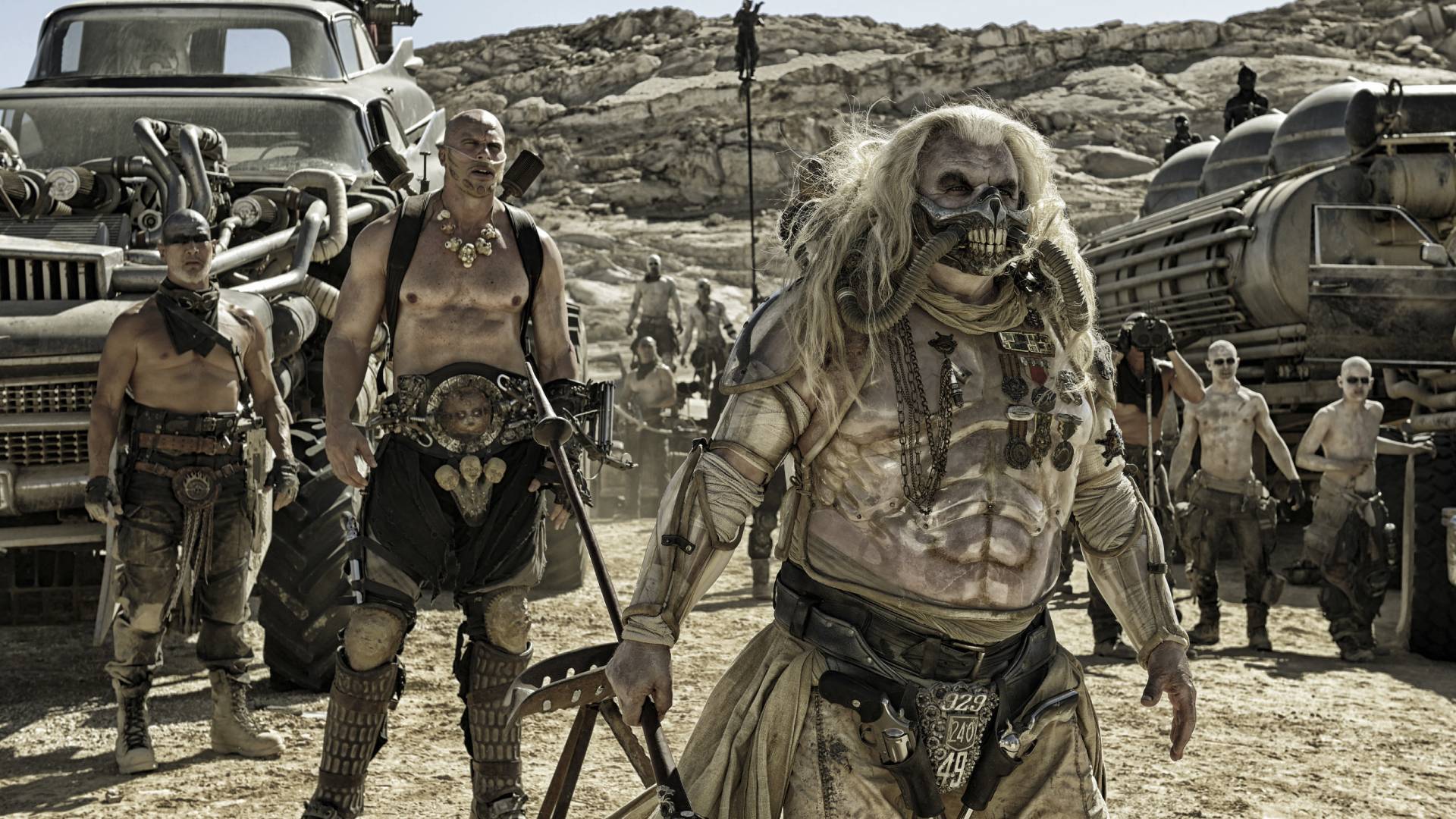
As breaks in franchises go, 30 years is a pretty lengthy hiatus. The sun last went down on Mad Max three decades ago at the end of 1985’s Beyond Thunderdome. The road back to the big screen has been anything but smooth, which is the least you’d expect from the post-apocalyptic antihero, whose iconic reputation comes pre-loaded with heaps of expectation. Not that he was ever envisaged as the face of a franchise.
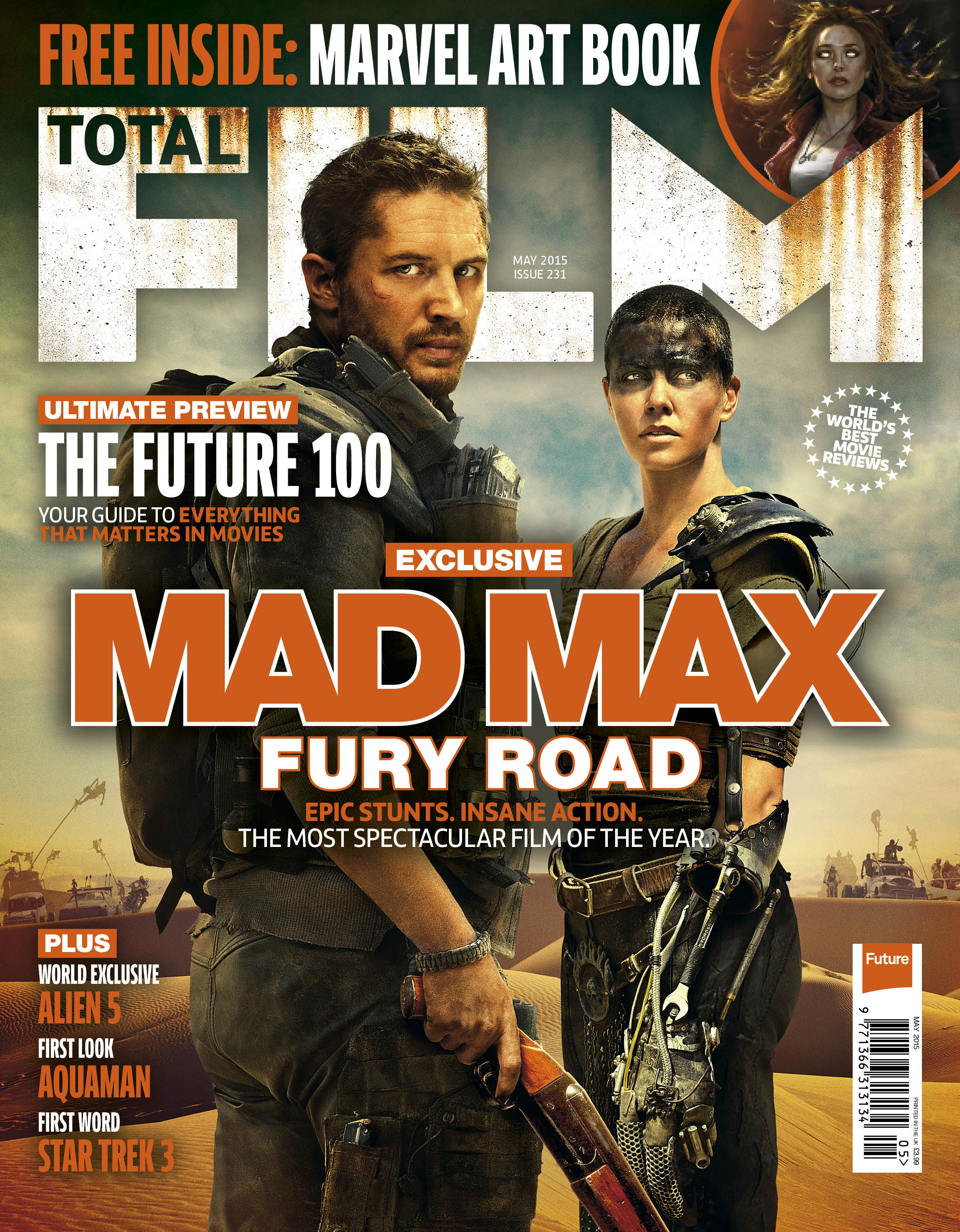
This interview was first published Total Film magazine Issue 231, 2015. You can subscribe here to never miss an issue.
“After I finished the first Mad Max, I never thought I’d make a second. After I finished the second, I never thought I’d make a third,” laughs director George Miller, the driving force behind the series since its inception. “And here I am, doomed to make Mad Max movies…” Cursed might be a more appropriate term here, given Fury Road’s arduous production history. Not that you’d know it to look at the teaser footage unveiled on an unsuspecting audience at Comic-Con in July 2014. Six minutes of breathless vehicular destruction, with armoured buggies streaking across the desert and ghoulishly dressed futuristic tribesfolk thrashing the hell out of their cars and each other. One thing was immediately clear: Mad Max: Fury Road isn’t going to be quite like anything else on the blockbuster release schedule.
Given how battered, shaken and dust-blasted viewers were left feeling after the SDCC showreel, Fury Road’s bumpy production history seems bruisingly apt. The concept of a ‘Mad Max 4’ has been knocking around for so long (up to a quarter of century, according to some reports) that Mel Gibson was still attached to begin with. During its time on the shelf, Fury Road almost became a 3D animated film (the script’s first incarnation was a storyboard concept ‘comic book’), before this live-action version was announced in late 2009, with Tom Hardy confirmed as the new leading man. Filming wouldn’t begin for almost two years, with production delayed further by freak weather. “There was often that feeling it was never going to get made,” remembers Miller. “We were rained out of our locations in the outback of Australia. The red desert turned to a flower garden. The salt lakes had pelicans on the water."
Searching for a suitably parched alternative, the franchise’s native Australia was left behind for Namibia, where the lack of rainfall means there’s zero plant life. In Miller’s spare, simple morality tales, details are fluid – as far as he’s concerned, the shooting location just needs to double for a continent “like Australia”; Fury Road isn’t going to be slowed down by specifics. The Mad Max universe has always operated under its own logic, in which the changing of the lead actor needn’t raise an eyebrow. Aussie character actor Bruce Spence played different roles in The Road Warrior and Beyond Thunderdome; Hugh Keays-Byrne – Toecutter in the original – is Fury Road’s tyrannical villain Immortan Joe. Looking for a new Max, Miller was reminded of what he saw in Gibson all those years ago when he was casting for the stoic, vengeful wanderer. “It’s probably a cliché, but [it’s] the notion of an animal charisma,” he says of Hardy. “In the presence of an animal is a wonderful majestic unpredictability that I think all the great charismatic actors have. That’s the quality I first saw in Mel Gibson when he played Mad Max at 21.” (As coincidence would have it, Miller points out that he’s just discovered Hardy was born in the very week the first Mad Max began shooting, back in September 1977).
“Tom brings his own unique quality,” asserts Miller. “It’s always the case. We had many James Bonds; we’ve had two Mad Maxes. There are a lot of overlapping similarities in James Bond, but each [actor] brings their own unique quality. That’s exactly the same with Tom versus Mel.”
New Max
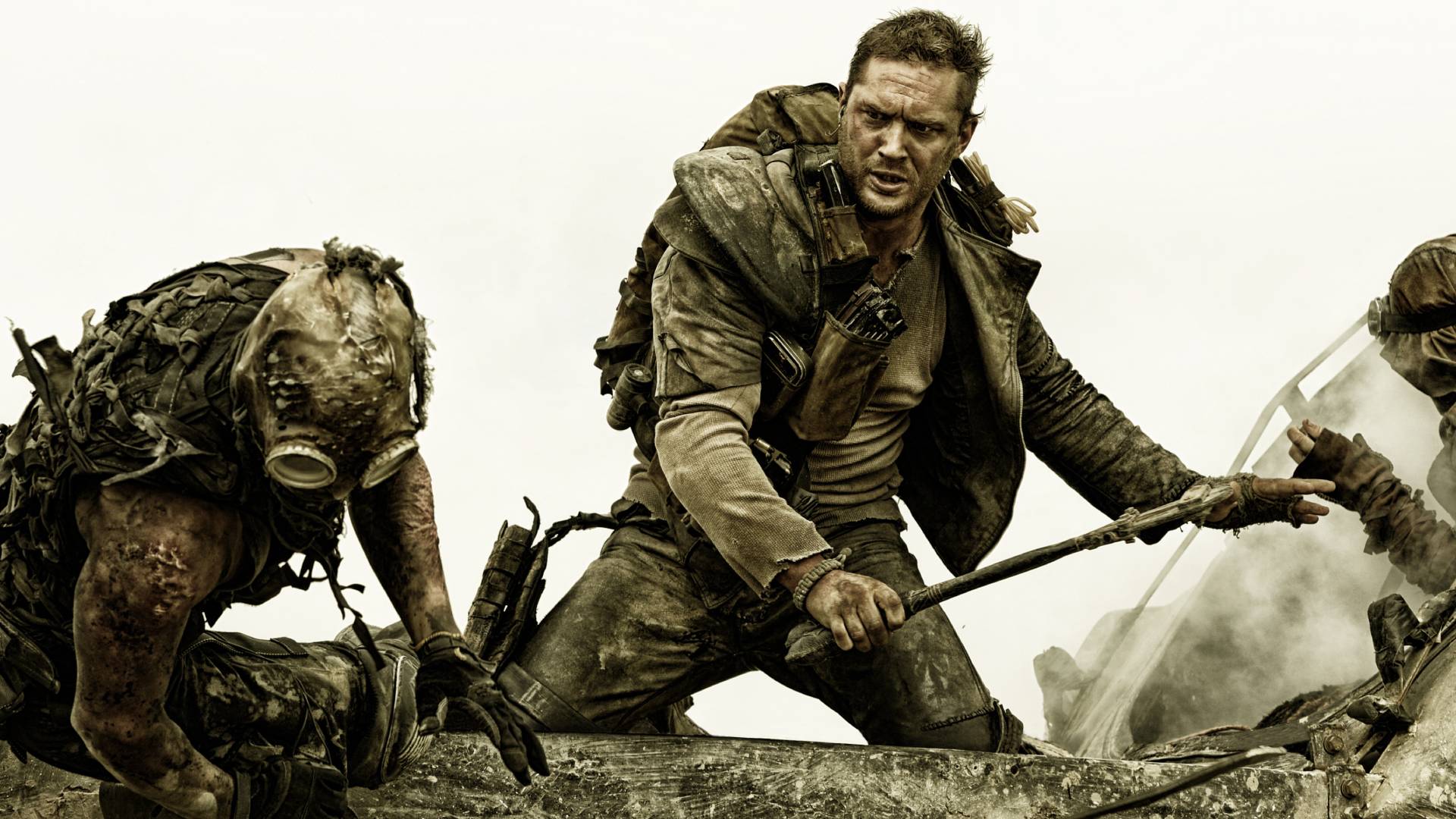
Hardy calls the role “an amazing opportunity of a lifetime for an actor”, and his co-stars agree it’s a fitting match of star and role. “He’s an intense guy and he’s an intense actor, and that’s what the part called for,” says Charlize Theron, when TF meets her in a suite at The London hotel in Beverly Hills. As Imperator Furiosa – the new installment’s ‘war rig’-helming preeminent badass – she sports a closely cropped buzzcut, a grease-smeared face, and a bionic arm that looks like it’s been cobbled together from used car parts. Not to mention a vest so grubby it’d have John McClane running to the dry cleaners.
“I got to show up 20 minutes before we went on set and I would walk out of my trailer in my wardrobe and roll in the sand, literally just roll,” grins Theron. As for her hair? She’d just have it clipped every three days. According to Miller, the hairdo was her idea. “She called one day and said, ‘I’m thinking of getting a buzz cut.’ The moment she said that, I just thought, ‘brilliant’.” Stripped of her femininity in a future where survival is the sole priority, Furiosa’s another transformational role for Theron (unrecognisable to the tune of an Oscar in Monster). “When survival has to kick in, sex goes out of the window,” says the South African born actress. “I mean, it’s like there’s no conscious thought process of, ‘I guess I’m a woman so I can do this...’ It’s like, ‘No, I gotta fuckin’ survive – that’s it!’ According to Miller, “only time will tell, but I don’t think anyone’s ever seen anything quite like [Furiosa] in cinema before.”
Sign up for the Total Film Newsletter
Bringing all the latest movie news, features, and reviews to your inbox
Nicholas Hoult also underwent quite a transformation to play ‘War Boy’ Nux. “Whenever you have make-up like that, it always makes it easier to act because your appearance changes so everyone’s approach to you changes, so suddenly you feel like a different person, and you look like it, so then it makes it easier to tap into different parts of your personality,” says the 25-year-old Brit, dressed down in grey sweatshirt and blue jeans. He’d spend a full two hours in make-up each day to give him pale, crusty skin and a scarred mouth. He also had his hair shaved to stubble, and used a skipping rope on set to drop weight. Theron, meanwhile, was bulking up to ensure she could cut it in the action environment. “I wanted to look like I had tremendous upper body strength because there was so much physicality in the movie – especially with someone like Tom Hardy. I just hate that idea of scrawny little girls fighting men off and then winning. I looked like a football player in this movie!”
Coming back to the franchise with which he made his name, Miller is also returning to the action genre, having more recently worked on the animated hit Happy Feet and its sequel (can you think of a filmmaker who’s had success with two such diametrically opposed film series?). With his softly spoken Australian accent, and thoughtful, considered disposition, he’s not quite what you’d expect from the face of cinematic carmageddon. Even the idea for Fury Road came at an unpredictably low-key moment. He specifically remembers when inspiration struck. “I was walking across a road on a pedestrian crossing. By the time I got halfway across, this idea popped into my head. It occurred to me it would make a really good Mad Max movie. By the time I got to the other side of the road, I said, ‘No, I don’t want to make a Mad Max movie.’” The idea was buried in his subconscious until a night flight across the Pacific a couple of years later, when the whole film (or the first two acts, at least), played out in his mind.
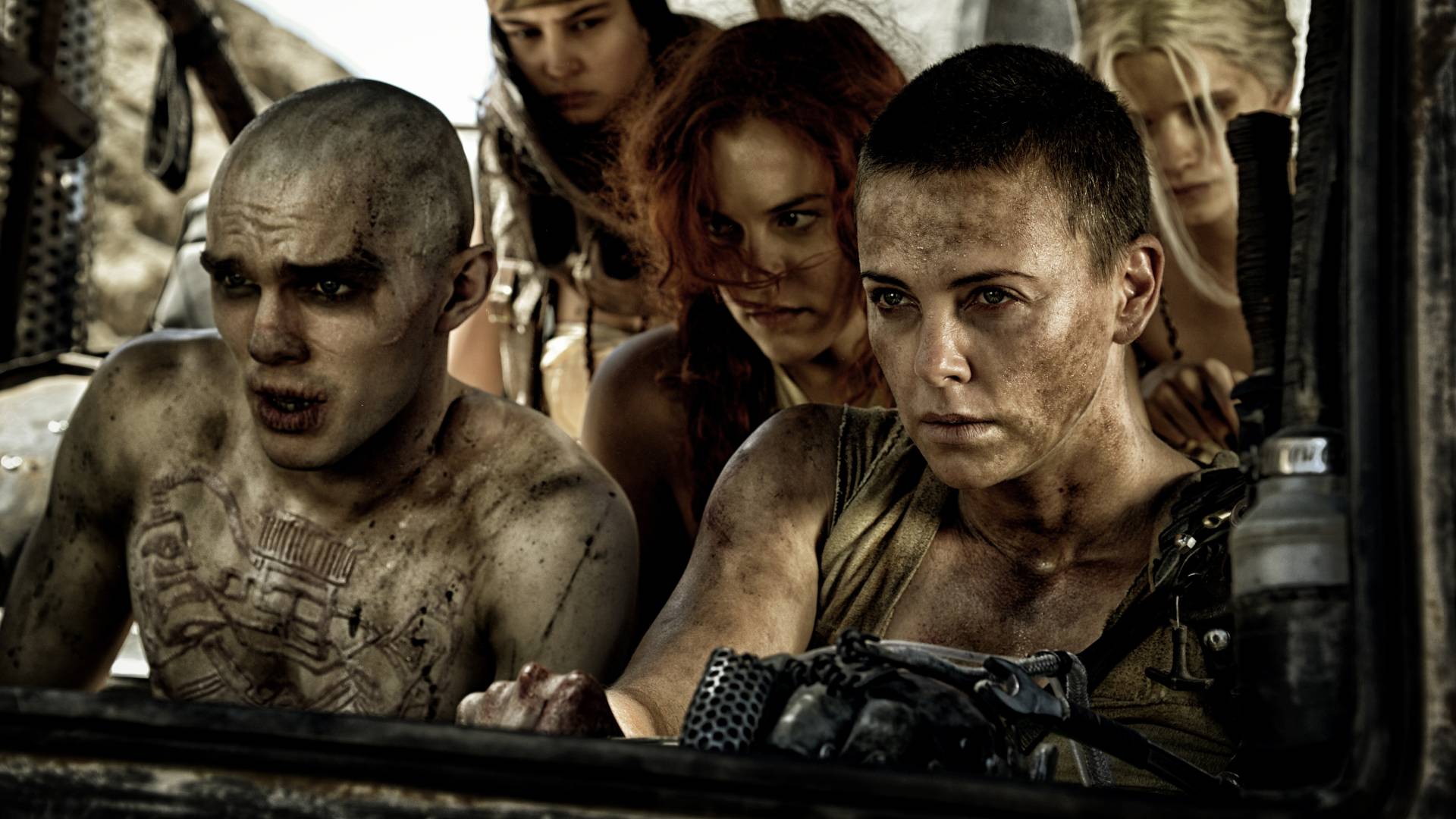
The “essential architecture” was there from the beginning, even if it was inevitably refined as more collaborators came on board. The idea, in Miller’s words, was to make “a continuous action piece”: to tell a story almost entirely visually. “Originally the script was just a comic book,” remembers Hoult. “It was 300 pages with no dialogue, essentially. You would just flip through looking at images of your character and kind of work out what was going on.” The objective was clear: the audience won’t be told a story; they’re going to have to try to cling on to one for dear life. Given the intensity of the Comic-Con footage, the full film could be something of an endurance test. Miller explains that “the aim is to immerse the audience as intensely as possible: they go in one end and come out the other end like a rollercoaster ride, and see what experiences they pick up on the way.” The 3D – which is currently being finely tuned – should add to that.
While summer 2015 is likely to see no shortage of spectacular set-pieces (with Avengers: Age Of Ultron, Jurassic World and Terminator: Genisys duking it out for box-office dominance), Fury Road is promising to be one BIG set-piece. “With a lot of movies, there’s the stunt sequences,” says Miller. “In this movie, every sequence had some element of risk or stunt. Even if it was a dialogue sequence, it was in a fast-travelling vehicle.
Often people were hanging off the vehicle, on top of the vehicle, or underneath the vehicle. That was the thing that basically created the most anxiety in me: how are we going to avoid maiming or killing someone today?”
With such a lean set-up, plot specifics are necessarily sparse, although Miller does share some details. Furiosa frees the so-called ‘Five Wives’ (young, child-bearing women, with Rosie Huntington-Whiteley, Riley Keough, and Zoë Kravitz among the quintet) from the custody of the big bad, the Immortan Joe, and goes on the run with them. Max gets caught up reluctantly in their troubles, as does Hoult’s Nux, who’s looking for a glorious death in battle, in the hopes of a sweet afterlife. As one of the Immortan’s best pursuit riders, he’s sent to chase the fugitives down.
Real world
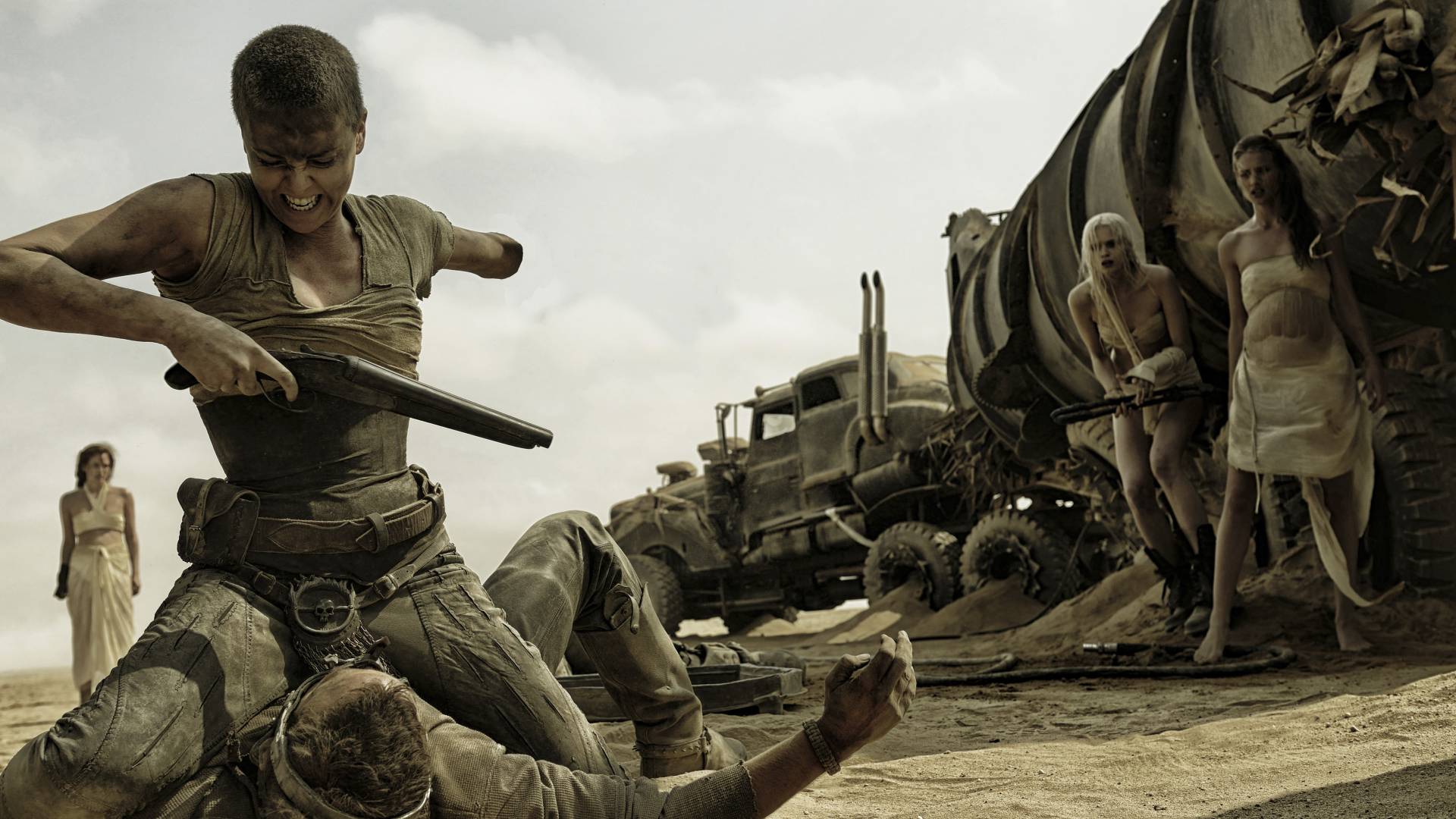
While anyone familiar with the Mad Max universe will recognise the desolate, arid landscapes, and the armoured super-cars, it’s designed to be an entry point for newbies, with Miller confident that audiences are familiar enough with apocalyptic scenarios to not need every detail spelled out for them. With visuals taking precedence over dialogue (Miller paraphrases the Hitchcock maxim of a “movie where they don’t have to read the subtitles in Japan”), Fury Road has more in common with an opera than your standard blockbuster template (and the booming requiem music in the trailer only adds to that vibe). “People only speak when it’s necessary, and as much as possible, the story is told by visuals – in that sense it’s very operatic,” agrees the director.
But make no mistake, this won’t be anything like an evening with Madame Butterfly, with Miller’s commitment to immersion and the spirit of the Mad Max movies calling for real stunts, on the biggest imaginable scale. “Mad Max has a raw, elemental quality,” says Miller. “It’s not a fantasy CGI movie. So why CGI a car wreck when you can do it for real?” That meant building, marshalling, and crashing dozens of stunt cars in Namibia. For the cast – who were heavily involved with the stunts – the experience was staggering. Wide-eyed, Hoult recalls the first time he drove out in the big war party. “I was sat in my car, and there were like 50 other cars and bikes and trucks and everything just flying around the desert. And I remember looking around before the take and it did give me chills, actually.”
“I remember thinking, ‘God, people are going to think this is CGI…” sighs Theron. “It was one of those moments where you’re like, ‘We are in a world. WE’RE AT WAR! YES!” Shooting in the often brutal location of Namibia (“We were there for almost eight months,” remembers Theron, “We all went through everything”) added to that tangible quality Miller was after. It just wouldn’t have been a Mad Max movie if it was filmed on a backlot. “It’s not a greenscreen movie shot inside a studio. It’s out there in the real world,” says Miller. “The film looks different – it feels different – than a CG movie. It feels like you’re really there."
It’s that world-building component and attention to detail that could mean Fury Road is unique among this summer’s blockbusters, but it won’t necessarily be a one-off. Miller does draw some comparisons with Max’s movie stablemates (“In his own very earthy way, he has the same struggles as a superhero”), but like its title character, it stands alone. And while Fury Road is based on a franchise from the past, it’s wasting no time laying out its own expanded universe, with comic-book backstories (cowritten by Miller) for Max, Furiosa, Nux and Immortan Joe set to be published shortly after the film’s release. And in terms of future films? The engine’s already being revved. “Because of the delay, we’ve written two others,” admits Miller. “If this does well enough to warrant another one, we have the scripts already…”
For more from Total Film, subscribe here and you'll have access to more than 10 years' worth of digital back issues as part of the subscription. That’s well over 100 issues you can explore, including our most recent issues.
Furiosa is in theaters now. For more on that movie, check out our guides to:
- Where does Furiosa take place on the Mad Max timeline?
- Everything we know about the Furiosa streaming date
- The Furiosa ending explained
- Furiosa Mad Max cameo explained
- Furiosa post-credits scene explained
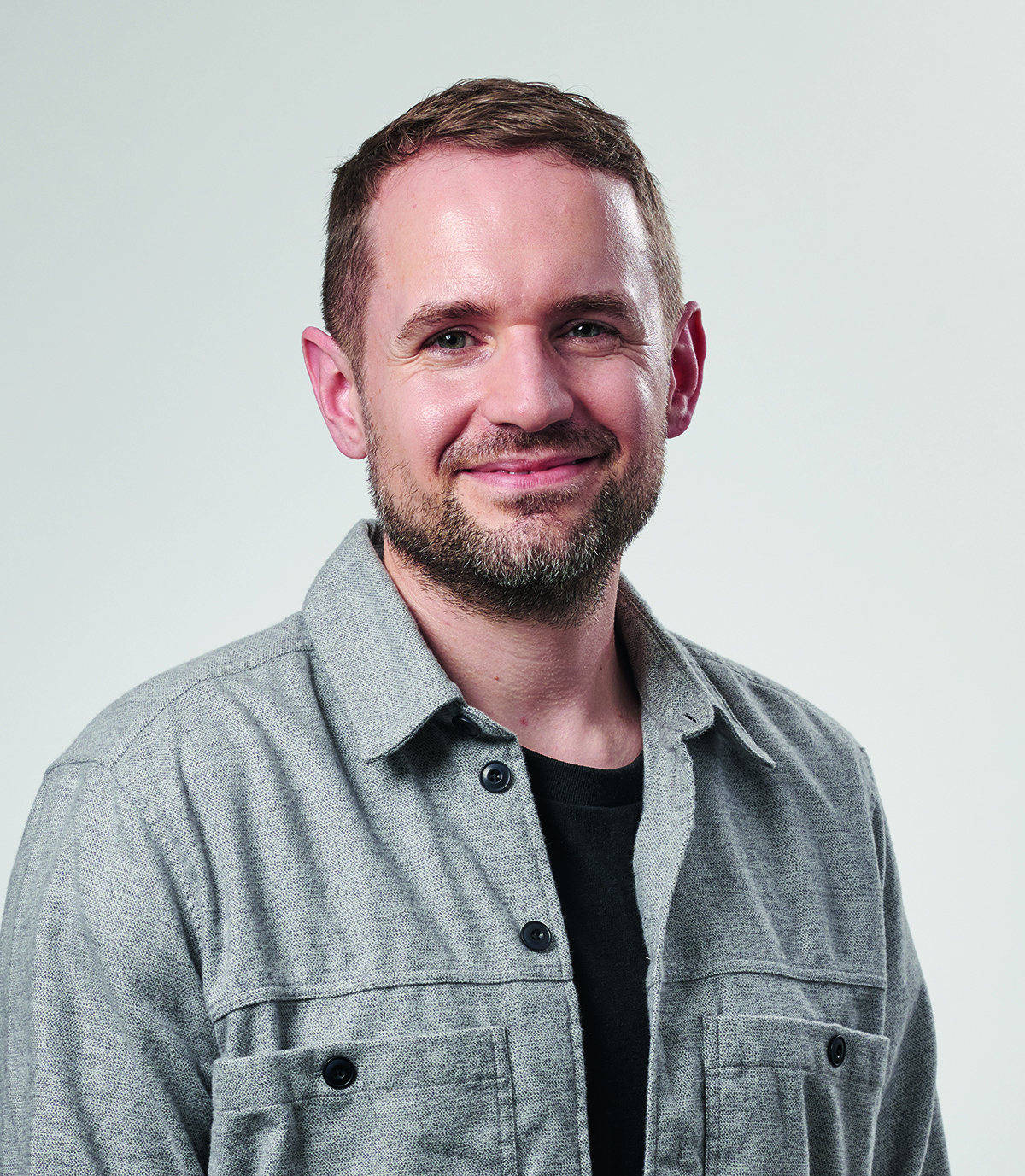
I'm the Editor at Total Film magazine, overseeing the running of the mag, and generally obsessing over all things Nolan, Kubrick and Pixar. Over the past decade I've worked in various roles for TF online and in print, including at GamesRadar+, and you can often hear me nattering on the Inside Total Film podcast. Bucket-list-ticking career highlights have included reporting from the set of Tenet and Avengers: Infinity War, as well as covering Comic-Con, TIFF and the Sundance Film Festival.


